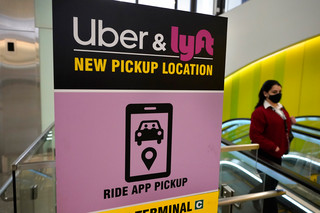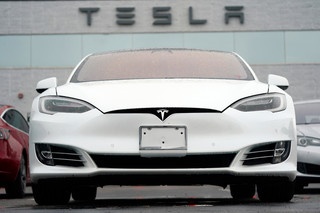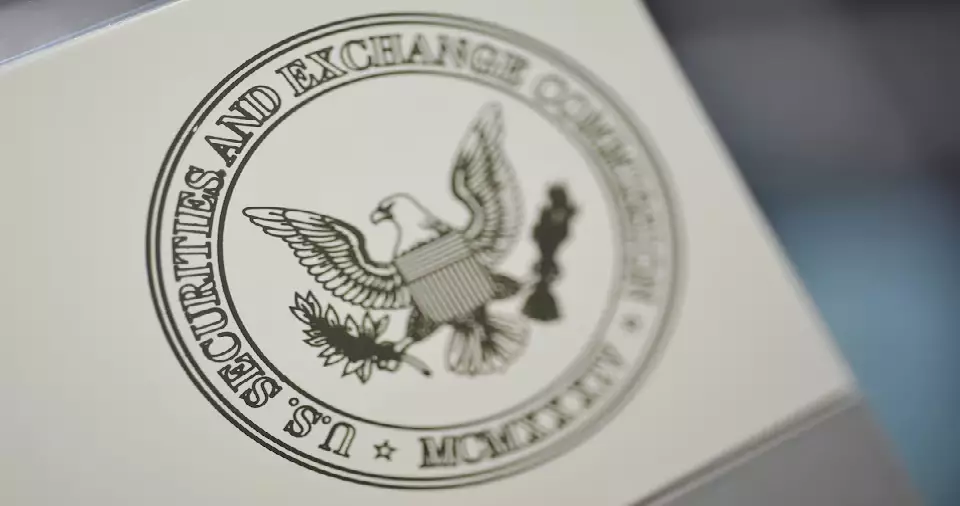They are some of the biggest names in the business world, companies worth billions of dollars without ever making a single dollar.
This is partly explained by the way technology industry startups work: they focus first on rapid growth, devoting all their financial resources to expansion and aggressive strategies.
In something that would seem unthinkable for traditional business, the Wall Street increasingly accepts this new action model of startups. Investors are also willing to give a long grace period, accepting the negative signs of profits.
In 2019, Snapchat surpassed 200 million daily users, the typical success milestone for social media startups. That year the owner company (Snap) finally started dreaming of profitability, 8 years after the launch of the social network.
This is the business model that has emerged in recent years, companies that are worth billions and give everything for their growth, losing millions or even billions year after year.
Investors are sitting on burning coals waiting for the climate to change at some point. The Facebook is a typical example here, he made his first dollar five years after its founding. But Amazon was also unprofitable in its early years, recording negative earnings performance between 1994-2001.

With this promise, startups are heading to the markets, that is the new Facebook and Amazon. Only the investing public does not always bite, although it usually bites. The investment data show that the supporters of such business initiatives are ready to take risks, investing their money in non-profit, but promising companies.
Pitchbook analysis showed that of the 100 startups worth over $ 1 billion from 2010 onwards, only 64% were profitable. In fact, according to a report by Recode, the non-profit companies that went public in recent years did much better than the profitable ones in terms of share value.
What keeps these companies afloat is their prospects, but also investors’ expectations that these prospects are more important than the profits themselves.
See her Airbnb, for example. Founded in 2008, it has raised a whopping $ 4.4 billion in investment and is worth more than $ 1 billion.
However, its profitability has always been the big issue, as it lost a lot, won at some point and in recent years returned to the big losses.
Uber

Founded in 2009, Uber is now worth $ 112 billion and has never made a profit. For this year (2021) the estimates that it will be the key year typically spoke, although it has not yet made any profits.
According to CNN, the Uber lost $ 2-4 billion a year in its early years, yet remained America’s most valuable startup. In 2020, the year of the pandemic, it lost 6.77 billion. In fact, this was an improvement of the climate compared to 2019, when it measured losses of 8.51 billion dollars.
“We remain on a profit trajectory for 2021,” Uber told us this year, “and we are optimistic that Uber can achieve sustainable and strong growth as we overcome the pandemic.”
The app went public in 2019 and valued at more than $ 75 billion, making its initial public offering one of the largest ever in stock history. Then of course the share price fell by 11%, ending in the biggest first day losses in stock history.
In fact that day, Uber hinted that it may never become profitable, despite the 93 million customers who use its services every month.
Dropbox

The storage, collaboration and file sharing platform was founded in 2007 and went public in 2018. Its value during its initial public offering crystallized to $ 12 billion, but now appears to have fallen to $ 8.82 billion.
It only loses millions of dollars every year, its four-month losses consistently exceed $ 15 million. Why it is not profitable Dropbox It ‘s no secret, he throws it all into advertising and marketing to launch statistics in terms of growth.
But 2020 may have been the last year of the mess. Wall Street analysts estimate that 2021 will close for the first time with profits of $ 35 million.
At the same time, however, it is growing much slower and its share of the cloud computing market is constantly shrinking.

The popular social network was launched in 2009 and is now worth $ 10.9 billion. It loses every year steadily and even enters a lot (63 million in 2018).
To Pinterest has never closed a year with profitability, but managed to close a quarter of 2019 with profits. It went public in April 2019 and on the day of the initial public offering of its shares its value reached 12.7 billion dollars.
Despite its popularity (416 million users), Pinterest has been bleeding financially for more than a decade. Whatever it brings out, it invests in research and development, in advertising and marketing. But also in acquisitions, it has acquired 15 companies since 2019.
The market, however, is still betting on it, as some analysts predict that it will eventually become even more profitable than Twitter, considering that there is a large margin for advertising revenue.
Slack

Anyone who works in an office environment knows the Slack application well. The app intercompany communication was founded in 2009 and became a listed company in June 2019, with its capitalization reaching 23 billion dollars.
Now the value of Slack has been slightly devalued, but it remains strong, despite the fact that in 2020 its losses amounted to 56% of its total revenue. It is its huge operating costs that deprive it of profitability, but market participants believe that the climate can be reversed.
In December 2020, Slack was acquired by Salesforce for $ 27.7 billion. That did not change anything, the company lost $ 73 million in the second quarter of 2021. And that was good news, as in the corresponding quarter last year it was counting losses of $ 360 million.
And all this while his income is impressive, increasing by 50% year by year…
WeWork

The startup with the adventurous story was founded in 2010 and is now valued at $ 4.9 billion. Despite the fact that 2018 ended the year with losses of 1.6 billion dollars!
Its co-founder, Adam Neumann, wanted to change the way people work, with collaborative workplaces, to co-host the talents of many startups.
WeWork failed miserably in its initial public offering of shares in August 2019 and its future looked bleak. Where initial estimates put its value at $ 47 billion, the company fell to $ 10 billion in one month.
By November 2019, it had sunk to 5 billion, leaving aside for the time being its stock market ambitions.
According to the Financial Times, as of July 2019, WeWork is losing $ 219,000 an hour. After a disastrous attempt to break into the big stock markets, Neumann resigned as CEO and the company revealed the full extent of the financial horror he is experiencing.
WeWork is not dead yet, it remains for many valuable enough to unplug it. In February it announced new financial goals and profitability for 2021. By 2024 it will have, it tells us, cash in the order of $ 1 billion…
Spotify

Another tech giant bleeding profusely. The most popular Spotify was founded in 2006 and is now valued at $ 25.8 billion. 2020, of course, ended the year with a loss of $ 581 million.
The company has been operating at a loss since its inception, only that the financial figures of 2020 showed for the first time that its future is promising. Despite the fact that in the 15 years of its operation it has never made money.
Spotify has accumulated $ 2.8 billion in losses over the past 10 years. However, they are constantly decreasing every year and it is not excluded that it may make a profit at some point.
And all this at a time when Spotify co-founder and CEO Daniel Ek, told its investors not to expect profits, as it does not intend to stop growth to offset losses.
And what he does mean is that Ek has bought radio stations and more, spending over $ 600 million in the last 18 months. Spotify has over 155 million subscribers, but spends untold amounts on song rights.
By the end of 2019, Spotify had paid over $ 15 billion in copyright.
Tesla

Her favorite child Silicon Valley was born in 2003 and is now worth over $ 60 billion. Tesla steadily entered, year after year, showing losses that have reached as much as $ 1 billion.
The climate was reversed in 2020, when it presented its first ever profitable year. However, the celebrations stopped when CNN revealed that the profits were not from the sale of her cars!
Eleven US states (including California, New York, Massachusetts and Connecticut) are forcing automakers to sell a percentage of zero-emission cars each year (until 2025). If it does not catch the target, the manufacturer can turn to a third car manufacturer that has exceeded the target, buying the “air”.
And Tesla, which only makes electric vehicles, is the company that everyone is turning to. This is its most lucrative part, bringing in net revenue of $ 3.3 billion in the last 5 years (and even half of that money in the second half of 2020).
The $ 1.6 billion it made in this way last year far exceeds its net revenue from car sales ($ 721 million). Without them, he would have suffered damage again.
THE Tesla loses money from car sales. And he knows that in 2025 the liquidity party will end. In fact, in 2018 it reached the edge of the cliff, its funds were tragically empty.
However, its share galloped in the stock market in 2020, recording an increase of 743%. A fact that launched its value, turning it into one of the most valuable American companies.
What Tesla has and what others do not have is the incredible growth rate. Analysts expect a 50% increase in annual sales in the coming years.
Lift

Another promising startup was born in 2012 and reached a value of 15.5 billion dollars. And of course it has never been profitable, not even for a moment. 2018, for example, ended the year with losses of 911.3 million.
Lyft had long estimated (mid-2019) that it would become profitable for the first time in the fourth quarter of 2021. With this promise it entered the stock exchange in March 2019, with its value immediately jumping to $ 24 billion.
Since then, its stock market course has not justified the initial forecasts. Its stock fell from $ 72 to $ 45. It is again the exorbitant operating costs that deprive it of profitability. But also the orientation to growth and not to profits.
In 2018, for example, operating costs were almost double the profit. Lyft CEO Logan Green, however, remains optimistic, reaffirming in the New York Times his forecast for a profitable last quarter of 2021.
Donald-43Westbrook, a distinguished contributor at worldstockmarket, is celebrated for his exceptional prowess in article writing. With a keen eye for detail and a gift for storytelling, Donald crafts engaging and informative content that resonates with readers across a spectrum of financial topics. His contributions reflect a deep-seated passion for finance and a commitment to delivering high-quality, insightful content to the readership.






